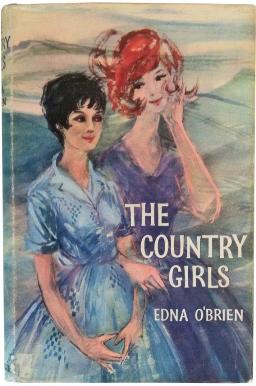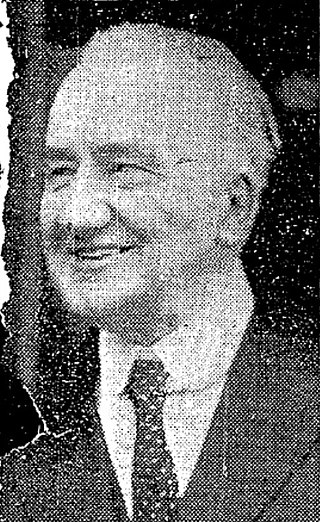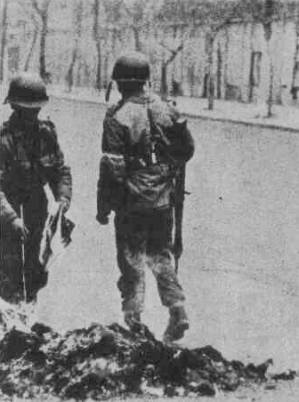Related Research Articles
In Ireland, the state retains laws that allow for censorship, including specific laws covering films, advertisements, newspapers and magazines, as well as terrorism and pornography. In the early years of the state, censorship was widely enforced, particularly in areas that were perceived to be in contradiction of Roman Catholic dogma, including abortion, sexuality and homosexuality. The church had banned many books and theories for centuries, listed in the Index Librorum Prohibitorum.
Michael Paschal Kitt is a former Irish Fianna Fáil politician who served as Leas-Cheann Comhairle of Dáil Éireann from 2011 to 2016, a Minister of State from 1991 to 1992, and from 2007 to 2009. He served as a Teachta Dála (TD) for the Galway East constituency from 1975 to 1977, 1981 to 2002, and 2007 to 2016. He was a Senator from 2002 to 2007, after being nominated by the Taoiseach and from 1977 to 1981 for the Administrative Panel.

Sir John Keane, 5th Baronet, DSO was an Irish barrister and politician.

The Country Girls is a trilogy by Irish author Edna O'Brien. It consists of three novels: The Country Girls (1960), The Lonely Girl (1962), and Girls in Their Married Bliss (1964). The trilogy was re-released in 1986 in a single volume with a revised ending to Girls in Their Married Bliss and addition of an epilogue. The Country Girls, both the trilogy and the novel, is often credited with breaking silence on sexual matters and social issues during a repressive period in Ireland following World War II and was adapted into a 1983 film. All three novels were banned by the Irish censorship board and faced significant public disdain in Ireland. O'Brien won the Kingsley Amis Award in 1962 for The Country Girls.

Film censorship is carried out by various countries to differing degrees, sometimes as a result of powerful or relentless lobbying by organizations or individuals. Films that are banned in a particular country change over time.
Contraception was illegal in Ireland from 1935 until 1980, when it was legalised with strong restrictions, later loosened. The ban reflected Catholic teachings on sexual morality.
The Censorship of Publications Board is an independent board established by the Censorship of Publications Act, 1929 to examine books and periodicals that are for sale in the Republic of Ireland. It is governed by the Censorship of Publications Acts of 1929, 1946 and 1967. The Board has the authority to prohibit any book or periodical that they find to be obscene. This makes it illegal to buy, sell or distribute that publication in the Republic of Ireland. The Board prohibited a large number of publications in the past, including books by respected authors. However, since the 1990s it does not prohibit publications very often.
Censorship in New Zealand has been present since around 1850 and is currently managed by the Classification Office under the Films, Videos, and Publications Classification Act 1993.

William Magennis was an Irish politician and university professor.
In Ireland, "publication or utterance of blasphemous matter", defamatory of any religion, was a criminal offence until 17 January 2020. It was a requirement of the 1937 Constitution until removed after a 2018 referendum. The common law offence of blasphemous libel, applicable only to Christianity and last prosecuted in 1855, was believed to fulfil the constitutional requirement until a 1999 ruling that it was incompatible with the constitution's guarantee of religious equality. The Defamation Act 2009 included a provision intended to fill the lacuna while being "virtually impossible" to enforce, and no prosecution was made under it. The 2009 statute increased controversy, with proponents of freedom of speech and freedom of religion arguing for amending the constitution. After the 2018 constitutional amendment, a separate bill to repeal the 2009 provision and residual references to blasphemy was enacted in 2019 by the Oireachtas (parliament) and came into force in 2020. The Prohibition of Incitement to Hatred Act 1989, which includes religion among the characteristics protected from incitement to hatred, remains in force.
Maev-Ann Wren is an Irish economist, journalist, author, and former special advisor to the Minister of State at the Department of Health, Roisin Shortall. She is the former economics editor of The Irish Times newspaper. Wren has written two books about the Irish health system and her writings have often been mentioned during Dáil and Seanad debates, and in parliamentary committee. She has been described in the Seanad as "a recognised expert on health care."

The Tailor and Ansty is a 1942 book by Eric Cross about the life of the Irish tailor and storyteller, Timothy Buckley, and his wife Anastasia ("Ansty") Buckley. The book was banned by the Censorship of Publications Board because of its depiction of premarital cohabitation, and its sexual frankness.

The New York Society for the Suppression of Vice was an institution dedicated to supervising the morality of the public, founded in 1873. Its specific mission was to monitor compliance with state laws and work with the courts and district attorneys in bringing offenders to justice. It and its members also pushed for additional laws against perceived immoral conduct. While the NYSSV is better remembered for its opposition to literary works, it also closely monitored the newsstands, commonly found on city sidewalks and in transportation terminals, which sold the popular newspapers and periodicals of the day.
Book censorship is the removal, suppression, or restricted circulation of literary, artistic, or educational material – of images, ideas, and information – on the grounds that these are morally or otherwise objectionable according to the standards applied by the censor. Censorship is "the regulation of speech and other forms of expression by an entrenched authority". The overall intent of censorship, in any form, is to act as "a kind of safeguard for society, typically to protect norms and values [...] censorship suppresses what is considered objectionable from a political, moral, or religious standpoint."

Book censorship is the act of some authority taking measures to suppress ideas and information within a book. Censorship is "the regulation of free speech and other forms of entrenched authority". Censors typically identify as either a concerned parent, community members who react to a text without reading, or local or national organizations. Marshall University Library defines a banned book as one that is "removed from a library, classroom etc." and a challenged book as one that is "requested to be removed from a library, classroom etc." Books can be censored by burning, shelf removal, school censorship, and banning books. Books are most often censored for age appropriateness, offensive language, sexual content, amongst other reasons. Similarly, religions may issue lists of banned books, such as the historical example of the Roman Catholic Church's Index Librorum Prohibitorum and bans of such books as Salman Rushdie's The Satanic Verses by Ayatollah Khomeini, which do not always carry legal force. Censorship can be enacted at the national or subnational level as well, and can carry legal penalties. Books may also be challenged at a local community level, although successful bans do not extend outside that area.
Film censorship in the Republic of Ireland began on a national basis with the introduction of the Censorship of Films Act in 1923. This act established the office of the Censor of Films, an office since replaced and renamed in 2008 as the Irish Film Classification Office.

What Happened to Burger's Daughter or How South African Censorship Works is a 1980 collection of essays by South African novelist Nadine Gordimer and others. The book is about the South African government's banning and subsequent unbanning of Gordimer's 1979 novel Burger's Daughter.
This is a list of the members of the 25th Seanad Éireann, the upper house of the Oireachtas (legislature) of Ireland. 49 Senators were elected in April 2016 when postal voting closed. The Taoiseach nominated an additional eleven members to the Seanad in May 2016. The Seanad election took place after the 2016 general election to Dáil Éireann.

The Thirty-seventh Amendment of the Constitution is an amendment to the constitution of Ireland which removed the constitution's requirement to criminalise "publication or utterance of blasphemous matter". The amendment was effected by an act of the Oireachtas — the Thirty-seventh Amendment of the Constitution Act 2018, which was introduced in Dáil Éireann, passed by the Dáil and Seanad, approved by the people in a referendum, and signed into law by the president.
References
- 1 2 Iris Oifigúil, 14 May 1930
- ↑ McGonagle, Marie (10 September 2000). "Censorship laws are out of date". Sunday Business Post. Archived from the original on 29 September 2007. Retrieved 1 August 2006.
- 1 2 Kennedy, Brian P. (1990). Dreams and Responsibilities: The State and the Arts in Independent Ireland. The Arts Council/An Chomhairle Ealaíon.
- 1 2 3 Report (25 August 1967). "The Unbanned Books". The Irish Times . p. 10.
- ↑ "Censorship of Publications Acts, 1929 TO 1967: Register of Prohibited Publications". Dublin: Irish Censorship Board. 31 December 2007. Retrieved 15 March 2010.
- ↑ "Censorship of Publications—Motion 1942". Oireachtas. 18 November 1942. Archived from the original on 7 June 2011. Retrieved 15 March 2010.
- ↑ Oireachtas, Houses of the (9 December 1942). "Seanad Éireann (3rd Seanad) – Wednesday, 9 Dec 1942 – Houses of the Oireachtas". www.oireachtas.ie.
- ↑ "What a shocker: no more books to ban". The Irish Times.
- ↑ Barry, Michael. "Censorship board bans book for the first time since 1998". The Irish Times.
- ↑ CBC's The Current Archived 7 August 2004 at the Wayback Machine the whole show blow by blow.
- ↑ Sova, Dawn B. (c. 2006). Banned Books : Literature Suppressed on Sexual Grounds . New York, NY: Facts on File. ISBN 0-8160-6272-2.
- ↑ Brendan Behan, Irish writer and playwright, Borstal Boy. FileRoom.org. Retrieved on 9 May 2010.
- ↑ Deegan, Gordon (2 August 2010). "Warm welcome home for O'Brien". The Irish Times . Dublin . Retrieved 2 August 2010.
- 1 2 Dwyer, Ryle (14 August 2010). "There was some truth in Paisley's tirades against our priestly republic". Irish Examiner . Cork . Retrieved 14 August 2010.